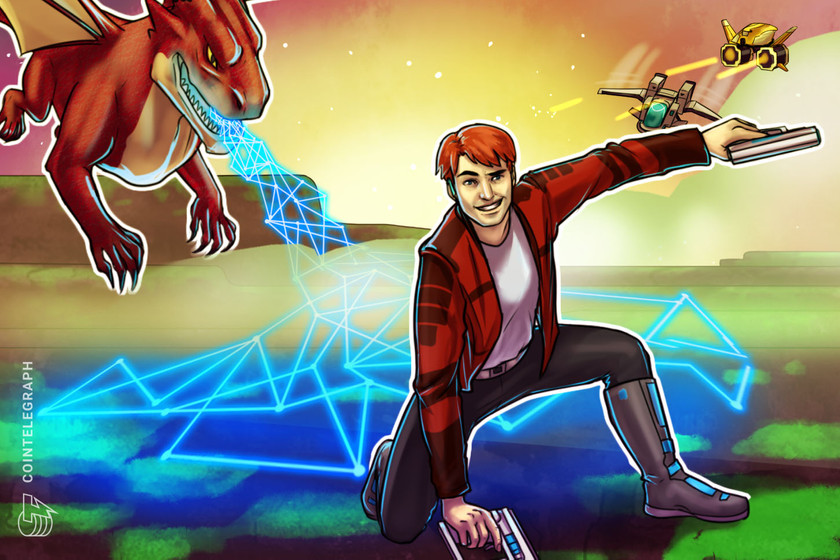Traditional firms likely won’t be leading the charge in the next generation of Web3 games — WAX CEO

“I actually think the first big games that have multimillion persistent users daily — those will come from new startup studios,” said William Quigley.
Traditional ideas about gaming, coming from both the firms developing the games and the players themselves, could slow down adoption of Web3 games, according to WAX co-founder and CEO William Quigley.
Speaking to Cointelegraph at a Web Summit panel in Portugal on Nov. 3, Quigley said “trying to build a video game using a blockchain is a pain in the ass,” clarifying that many of the products on the market are based on browsers but utilize in-game digital assets on the blockchain. The WAX CEO added that nonfungible tokens, or NFTs, had given independent developers an edge in gaming, allowing them to conduct presales and raise needed funds.
“For the most part, the people who are building [blockchain-based games] today are independent game developers,” said Quigley. “Big, triple-A title video game companies haven’t yet embraced it, and probably for good reason — they’re not sure what the revenue model’s going to be; they’re not sure how it’s going to change their game.”
He added:
“I actually think the first big games that have multimillion persistent users daily — those will come from new startup studios. I doubt they will come from the traditional video game market.”
Also on the Web Summit panel, Gamee co-founder and CEO Bozena Rezab said NFT pre-sales may offer some benefits, but held the potential to “trap” developers by putting them in a binding relationship with gamers looking for a certain product. Quigley said that many traditional gamers “cannot stand NFTs” for “pollut[ing] the game play” — something that could slow down companies looking to adopt blockchain-based games.
“The biggest sort of new thing on the horizon that could allow blockchain-based games to take off would be augmented reality, virtual reality,” said Quigley. “When that happens I suspect the principal revenue model for AR, VR games is going to be something like a tradeable item, an NFT or whatever we’ll call it. That, I think, will be the next big bump up in users.”
Related: Blockchain games and metaverse projects raised $1.3B in Q3: DappRadar
As the crypto and blockchain space continues to grow, so too have the number of options available to users interested in having the technology integrated into their favorite games. SupraOracles reported the market capitalization of the 5 most used in-game tokens was roughly $25 billion in February, with the total gaming market predicted to reach more than $583 billion by 2030.



